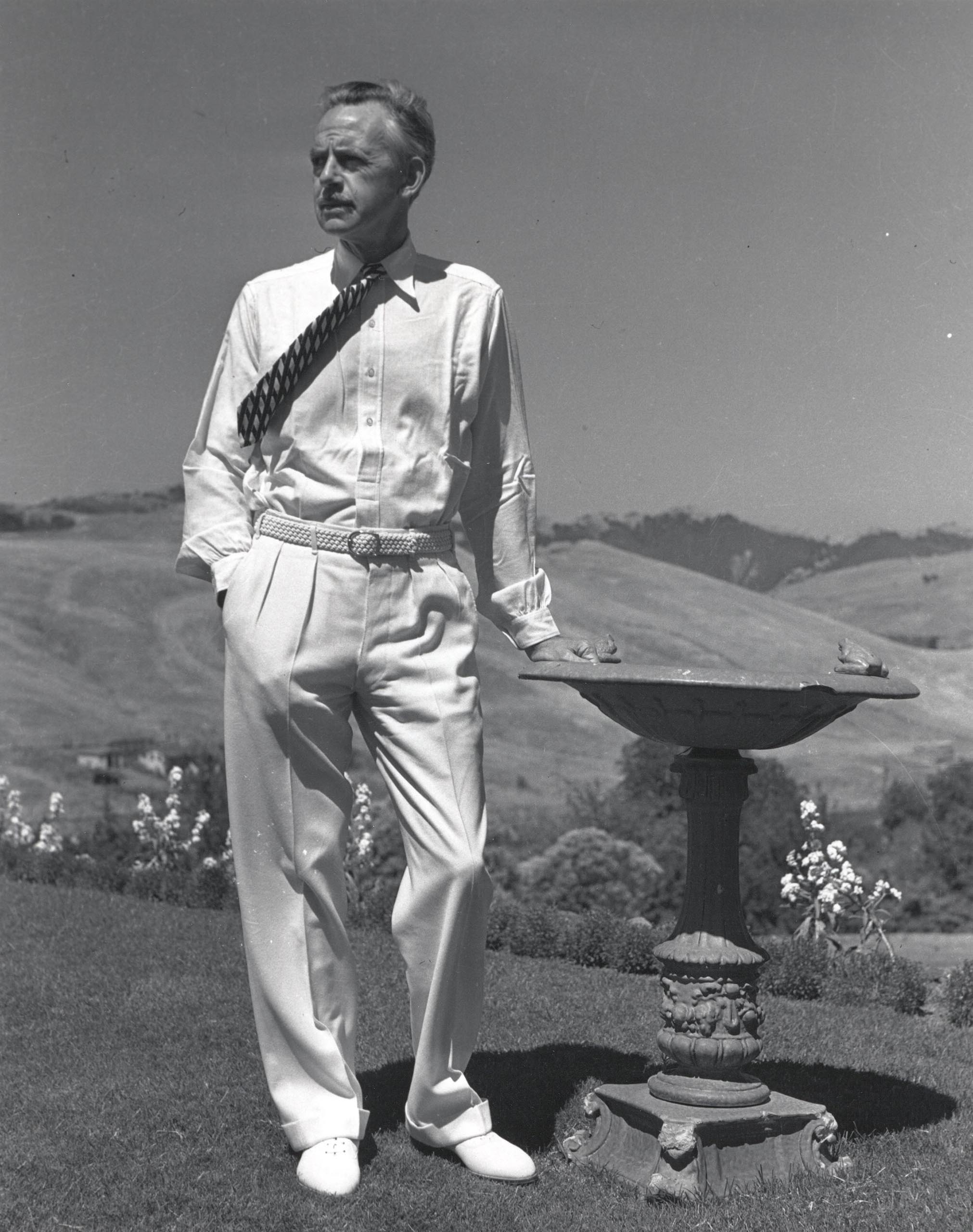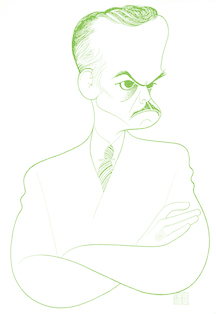Eugene Gladstone O’Neill 1888 – 1953
America’s First Major Playwright
When Eugene O’Neill began writing for the stage early in the 20th century, American theatre was dominated by vaudeville and romantic melodramas. Influenced by Strindberg, Ibsen, and other European playwrights, O’Neill vowed to create a theatre in America, stripped of false sentimentality, which would explore the deepest stirrings of the human spirit. In 1914, he wrote: “I want to be an artist or nothing.”

During the 1920s, he was awarded the Pulitzer Prize for three of his plays—Beyond the Horizon, “Anna Christie,” and Strange Interlude. Other popular successes, including The Emperor Jones, The Hairy Ape, Desire Under the Elms, The Great God Brown, and Mourning Becomes Electra, brought him international acclaim. In 1936, he was awarded the Nobel Prize for Literature—the only American playwright to be so honored.
During the 1920s, he was awarded the Pulitzer Prize for three of his plays—Beyond the Horizon, “Anna Christie,” and Strange Interlude. Other popular successes, including The Emperor Jones, The Hairy Ape, Desire Under the Elms, The Great God Brown, and Mourning Becomes Electra, brought him international acclaim. In 1936, he was awarded the Nobel Prize for Literature—the only American playwright to be so honored.
O’Neill experimented with new dramatic techniques and dared tackle such controversial issues as interracial marriage, the equality of the sexes, the power of the unconscious mind, and the hold of materialism on the American soul. In each of his plays, he sought to reveal the mysterious forces “behind life” which shape human destiny.
Three of his final works, written at Tao House, tower over the others: The Iceman Cometh, Long Day’s Journey Into Night, and A Moon for the Misbegotten. These autobiographical plays portray, with “faithful realism,” the haunting figures of his father, mother, and brother who loom in the background of most of his other plays. He was awarded a fourth Pulitzer Prize, posthumously in 1956, for Long Day’s Journey Into Night.
In a career that spanned three decades, Eugene O’Neill changed American theatre forever.
Online Resources
Eugene O’Neill Foundation Library
our online library collection is under construction but will be available soon. If you wish to visit us in person, learn more about our fellowship programs
The Eugene O’Neill Review
Serving scholars with an interest in O’Neill’s life and writings, The Eugene O’Neill Review publishes peer-reviewed essays and notes covering theatrical or literary history. The Eugene O’Neill Review is the official academic journal of the Eugene O’Neill Society

The Eugene O’Neill Theater Center
Founded in 1964 by George C. White, in honor of America’s only Nobel Prize-winning playwright, The O’Neill Center is home to the National Playwrights Conference, National Music Theater Conference, National Theater Institute, and more. The O’Neill Center also manages and operates Monte Cristo Cottage, O’Neill’s childhood home located in neighboring New London.